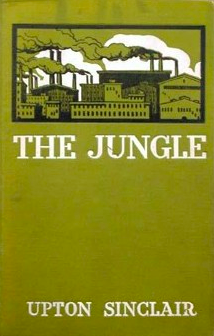Origins of Modern News: A History of Investigative Journalism
May 7, 2019
Newspapers, and the news in general, has existed as far back as colonial times, perhaps even further than that. Benjamin Franklin’s older brother actually owned a newspaper known as the New England Courant, and Franklin followed up with his own newspaper as well. However, this article is going to be about a specific area of news that I find very interesting: investigative journalism. Investigative journalism is so interesting because of how much of an impact it can truly make even though it is the works of just one person at times. This kind of influence cannot be shown more clearly than in the Progressive Era, a time from about 1890-1920, in which investigative journalism has its roots and really took off.
The Progressive Era was a time in which more people began to oppose and speak out against aspects of their society that they thought were unjust or wrong. This usually took place in the field of labor where activists pushed for the 8-hour workday and the end of child labor, but progressives were also women’s rights activists, environmentalists, and even social reformers. Investigative journalism had its roots in the Progressive Era, and it is through some of the most influential pieces of this time that many changes came.
The writers of this time period were known as “muckrakers”, meaning that they roused up things and showed the “mud” for everyone to see. This was not just limited to men; women could do this job too. In fact, Ida Tarbell, a woman, is known as one of the pioneers of investigative journalism. She wrote an exposé called The History of the Standard Oil Company, in which she detailed all of the corrupt business practices of John D. Rockefeller’s monopoly. Within this book comes quotes like this one:
“Very often people who admit the facts, who are willing to see that Mr. Rockefeller has employed force and fraud to secure his ends, justify him by declaring, ‘It’s business.’ That is, ‘it’s business’ has come to be a legitimate excuse for hard dealing, sly tricks, special privileges.”
This book was not only groundbreaking, but it was also incredibly successful in the act of muckraking. In fact, Tarbell and this book are credited with hastening the fall of Standard Oil, turning the public against the huge trust which was eventually split up into several different companies.
Another famous muckraking book, one which pertains to probably many of our own ancestors, is called How the Other Half Lives, which was written by Jacob Riis. This book tells the tale of “the other half,” the immigrants and the poor of America. Riis himself was an immigrant and sought to improve the dastardly living conditions of the mistreated immigrants. Included in this book are not only many pictures, but also a description of the horrifying tenement houses in which the immigrants lived, described as follows:
“Crazy old buildings, crowded rear tenements in filthy yards, dark, damp basements, leaking garrets, shops, outhouses, and stables converted into dwellings, though scarcely fit to shelter brutes, are habitations of thousands of our fellow-beings in this wealthy, Christian city.”
Pretty gross, right? But no muckraking book is nearly as gross as the book known simply as The Jungle. This book was written by Upton Sinclair and sought to expose the horrific working conditions of workers in the meatpacking industry. However, this book did not actually have its intended effect. Upton Sinclair himself famously said, “I aimed at the public’s heart and by accident I hit it in the stomach.” The working conditions of the meatpackers were not at the forefront of the public’s reaction to this book, but instead, it was the disgusting conditions of the factories themselves and the food that they were consuming. Imagine a factory as Sinclair describes it:
“The meat would be shoveled into carts, and the man who did the shoveling would not trouble to lift out a rat even when he saw one—there were things that went into the sausage in comparison with which a poisoned rat was a tidbit. There was no place for the men to wash their hands before they ate their dinner, and so they made a practice of washing them in the water that was to be ladled into the sausage. There were the butt-ends of smoked meat, and the scraps of corned beef, and all the odds and ends of the waste of the plants, that would be dumped into old barrels in the cellar and left there. Under the system of rigid economy which the packers enforced, there were some jobs that it only paid to do once in a long time, and among these was the cleaning out of the waste barrels. Every spring they did it; and in the barrels would be dirt and rust and old nails and stale water—and cartload after cartload of it would be taken up and dumped into the hoppers with fresh meat, and sent out to the public’s breakfast.”
Now imagine if you were someone who bought and consumed meat most days of the week. You would certainly be pretty outraged, would you not? The public was so outraged by this book that the American government created the Pure Food and Drug Act of 1906, which created new regulations for food producers.
These three authors, along with many others, pioneered what investigative journalism would become, and they were able to create changes almost completely by themselves. These writers influenced all investigative journalism to this very day, including Bob Woodward and Carl Bernstein, who helped to expose the Watergate Scandal. Truly, they were pioneers for their time, exposing things that nobody else wanted to expose, and showing everyone the dark sides that were often ignored.

